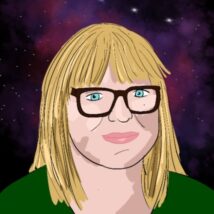
Janet Raloff
Editor, Digital, Science News Explores
Editor Janet Raloff has been a part of the Science News Media Group for more than four decades. While a staff writer at Science News, she covered the environment, toxicology, energy, science policy, agriculture and nutrition. She was among the first to give national visibility to such issues as electromagnetic pulse weaponry and hormone-mimicking pollutants, and was the first anywhere to report on the widespread tainting of streams and groundwater sources with pharmaceuticals. Her writing has won awards from the National Association of Science Writers, International Free Press Association and the Institute of Food Technologists. Over the years, Janet has been an occasional commentator on NPR's "Living on Earth" and her work has appeared in several dozen publications. She is also a founding board member of the Society of Environmental Journalists. In July 2007, while still writing for Science News, Janet took over Science News Explores (then known as Science News for Kids) as a part-time responsibility. Eventually, she expanded the magazine's depth, breadth and publication cycle. In 2013 it became her full-time job (although she still writes the occasional story for Science News). Before joining Science News, Janet was managing editor of Energy Research Reports (outside Boston), a staff writer at Chemistry (an American Chemical Society magazine) and a writer/editor for Chicago's Adler Planetarium. Initially an astronomy major, she earned undergraduate and graduate degrees from the Medill School of Journalism at Northwestern University (with an elective major in physics). She interned with the Office of Cancer Communications (NIH), Argonne National Laboratory, the Atomic Energy Commission (now Energy Department), the Oak Ridger in Tennessee and the Rock Hill Evening Herald in South Carolina.

All Stories by Janet Raloff
-
 Health & Medicine
Health & MedicineExplainer: When loud becomes dangerous
Many people don’t realize that sounds — even those of the music they love — can prove harmful when they get too loud.
-
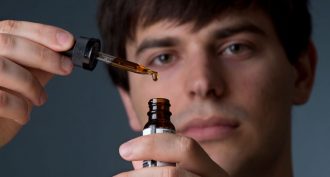 Health & Medicine
Health & MedicineTeen vaping soars past cigarette use
Most U.S. states ban sales of e-cigarette products to kids. Still, new data show that it’s no sweat for tweens and teens to buy them online.
-
 Plants
PlantsExplainer: Some supplements may not have what it takes
Dietary supplements made from plants may not contain all of the chemicals that usually make a particular plant healthy for humans.
-
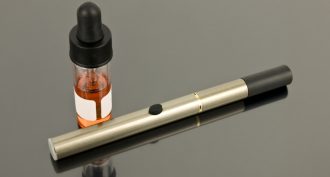 Health & Medicine
Health & MedicineVaping may threaten brain, immunity and more
New studies of e-cigarette vapor in animals and human cells find new risks to gene activity, behavior and male sperm.
-
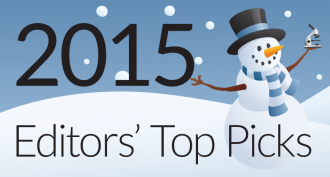 Science & Society
Science & SocietyThe most important stories of 2015
From Pluto to gene editing, the year saw a number of notable research discoveries, advances and insights.
-
 Health & Medicine
Health & MedicineNews Brief: Group dancing helps teens bond
Coordinated dance routines help teens bond with one another, new data show. Group dancing also offers other benefits, including a higher threshold for pain.
-
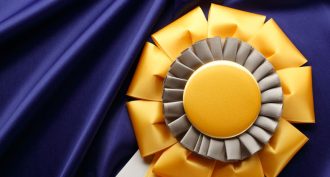 Ecosystems
EcosystemsTwo SNS writers win big
Here’s a Cool Job: writing about science. Two people who regularly do that for SNS have just picked up awards for stories on the physics of lightning and how nature recycles the dead to feed the living.
-
 Chemistry
ChemistrySome air pollutants seep through skin
The skin is the body’s largest organ. And it can let in as much or more of certain air pollutants than enter through the lungs, a new study finds.
-
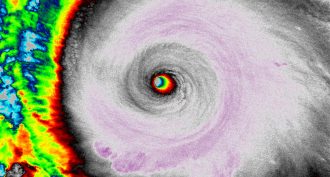 Climate
ClimatePicture This: Biggest hurricane in the West
The hurricane that’s storming into western Mexico has had higher sustained winds than any seen in the Western Hemisphere. It’s also got the lowest atmospheric pressure, making it a monster storm.
-
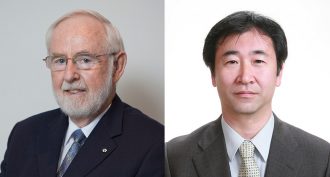 Physics
PhysicsParticles that zip through matter snare Nobel
Two scientists won the 2015 Nobel Prize in physics for their discovery that neutrinos, particles that can pass through almost all matter, have mass.
-
 Science & Society
Science & SocietyWhen a study can’t be replicated
Many factors can prevent one study from matching another in all regards, including its findings. Those factors may have nothing to do with mischief.
-
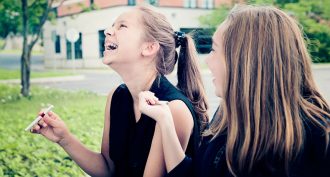 Science & Society
Science & SocietyMore data link vaping to smoking
A new study finds vapers who don’t smoke are likely to start — even when they initially had no intention of ever taking up a cigarette.